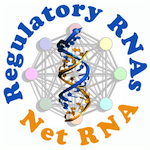Virus-induced diseases cause severe damages to cultivated plants resulting in crop losses. Interestingly, in some cases, the diseased plants are able to re-gain health, further grow and develop normally. Understanding this process of disease recovery has very important implications for deciphering the origin of disease and for achieving disease control in agriculture. Using Arabidopsis thaliana as a model system, the team of Manfred Heinlein and researchers of the University of Basel identified genes and mechanisms involved in recovery. Moreover, they demonstrate that recovered leaves still contain replicating and infectious virus. Thus, disease recovery involves the achievement of a tolerant state in which the replicating virus and the plant can co-exist without disease.
This study published on March 1, 2018 in the journal Nature Plants is commented in a related “news and views” article in the same issue.
Actualités scientifiques de l’INSB
Crosstalk between PTGS and TGS pathways in natural antiviral immunity and disease recovery.
Kørner CJ, Pitzalis N, Peña EJ, Erhardt M, Vazquez F, Heinlein M.
Nat Plants. 2018 Mar;4(3):157-164.















